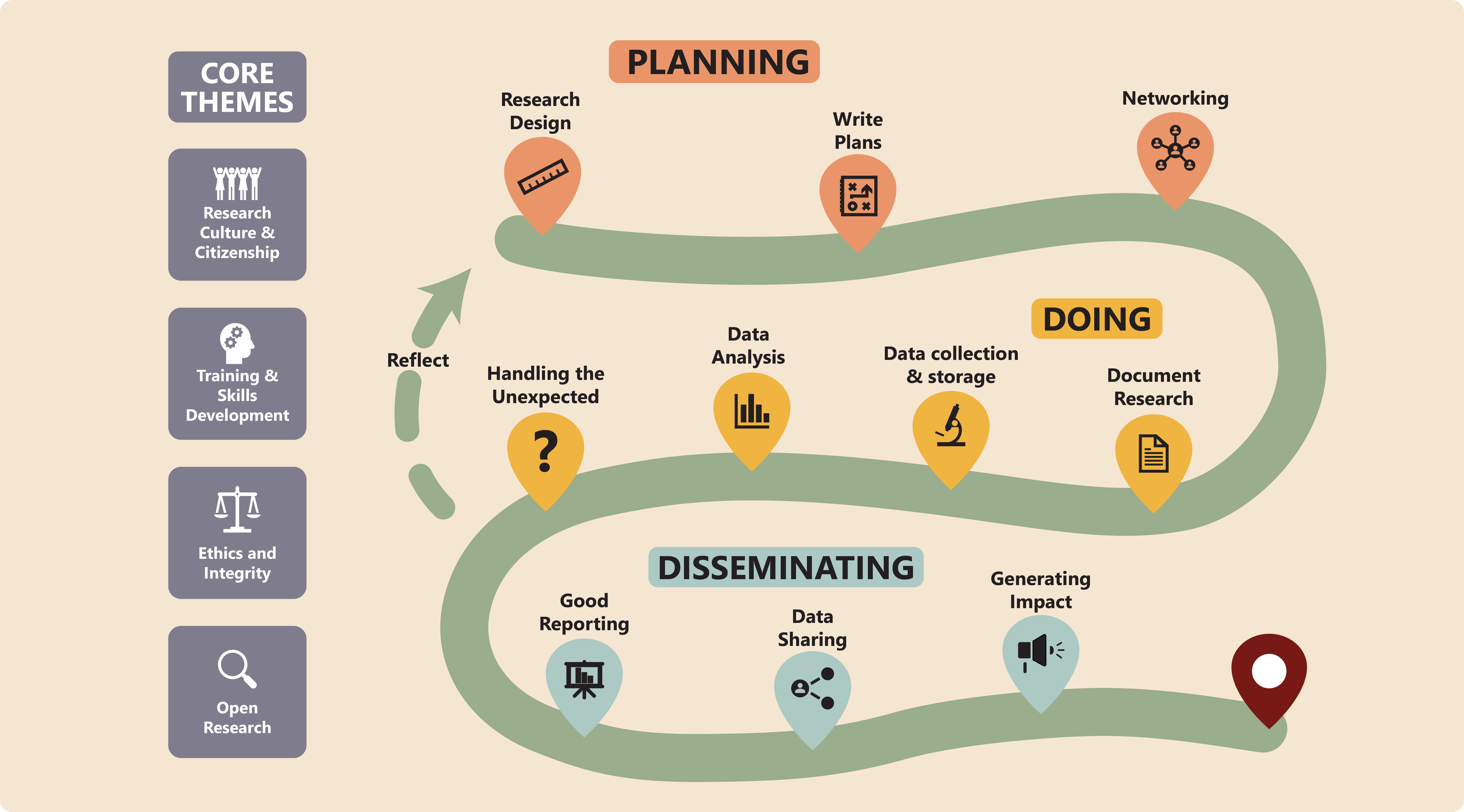Networking

Building a network of peers and potential collaborators is a great way to build academic and/or professional relationships, to exchange information and stay up to date with opportunities in your field, and to build a community of like-minded researchers.

-
Regularly interact with other researchers in your field (e.g., at departmental talks, conferences, interest groups) or researchers concerned with your broader interests (e.g. reproducibility/integrity, education).
-
Ensure you regularly attend events such as conferences, journal clubs, events at organisations relevant to your research topic or research interests, career days etc.
-
Be aware of your online footprint and consider investing effort into building an up-to-date and comprehensive online profile, on professional (e.g. LinkedIn) or social media platforms (e.g. BlueSky, Threads alike, as well as on university webpages.
-
Consider joining online communities, from general professional sites like LinkedIn, to online seminar groups, or spaces like forums to connect with other researchers in your field/domain and build connections or exchange information.
-
Consider finding an academic mentor to help with your development and career progression. This should be someone external to your project, who can offer more general guidance. You may wish to discuss with your supervisors any suggestions for possible mentors.
-
Use your existing connections (e.g., supervisors, line managers, thesis committees, mentors) as a starting point to grow your network, and keep an eye on growth opportunities
Can you think of any other ways to start building your network?